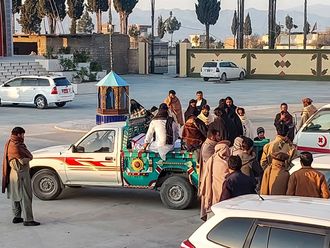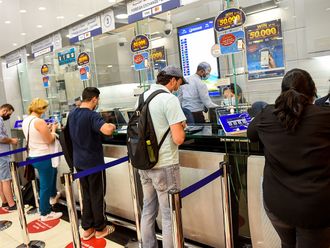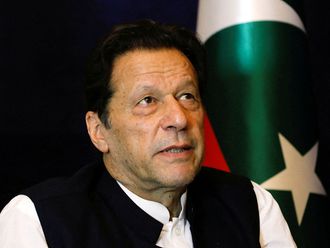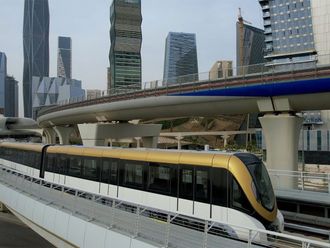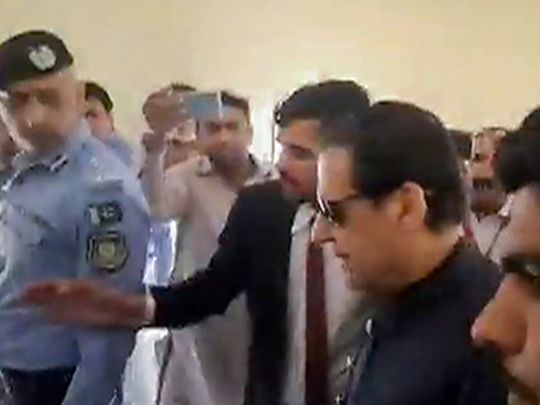
ISLAMABAD: Pakistan’s top court on Thursday ordered the anti-graft agency to release former Prime Minister Imran Khan from its custody, terming his arrest as illegal.
Khan’s arrest on Tuesday in a land fraud case sparked deadly and widespread protests across the South Asian country, prompting the government to call in the army to help restore order.
Though Khan was released from custody, he will be under protection of security forces in a safe location in the capital, Islamabad, the head of his legal team, Babar Awan, told reporters. He is to appear before the Islamabad High Court on Friday, Awan said.
The directives were issued by Chief Justice of Pakistan (CJP) Umar Ata Bandial as the court resumed hearing Imran’s plea against his arrest.
Supreme Court chief justice Umar Ata Bandial also asked Khan to issue an appeal to his supporters to remain peaceful, as the country faced growing turmoil in its streets.
The supporters of Khan were seen dancing near the court building to celebrate his release.
Clashes with police since Khan’s dramatic arrest on Tuesday have left at least 10 of his supporters dead and dozens injured, along with more than 200 policemen injured. Demonstrators burned down a railway station on the outskirts of the capital, Islamabad, on Wednesday night. On Thursday, they clashed with police in neighborhoods around Pakistan’s second largest city, Lahore, setting fire to a police car and blocking a train.
Police said Thursday that nearly 1,600 of Khan supporters were arrested overnight around the country on charges of damaging public property and attacking military installations, bringing the total of those detained since Tuesday to 2,300.
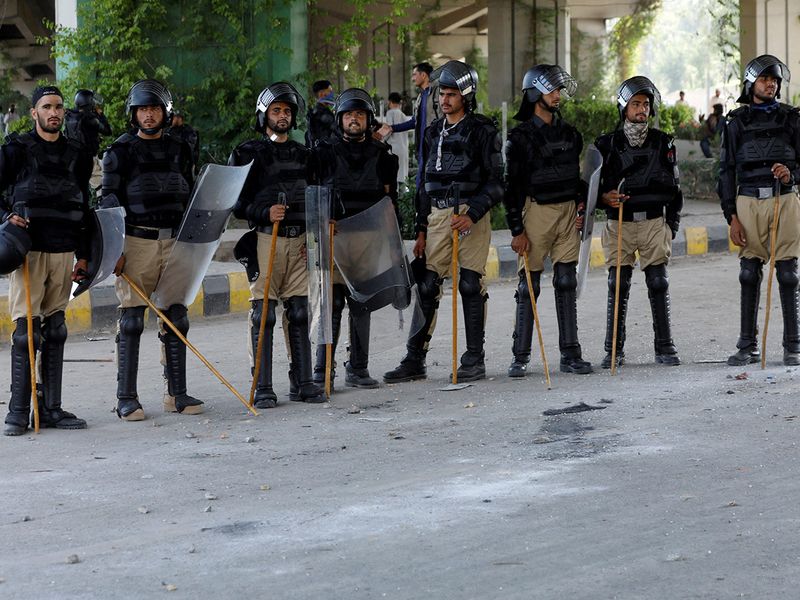
The arrests followed mob attacks on government and military buildings, with protesters torching trucks, cars and police vehicles in the streets and blocking highways. In one incident hours after Khan’s arrest, a mob set fire Tuesday to the sprawling residence of a top army commander in Lahore.
As police took Khan on Thursday to the Supreme Court amid tight security, the government demanded he remain in custody.
“It would be unfair if you give any reprieve to him,” Information Minister Marriyum Aurangzeb told a news conference, addressing the top court’s chief justice. She pointed to violence carried out by Khan’s followers, saying the court would be giving a “license to kill to everyone” if the former premier is freed.
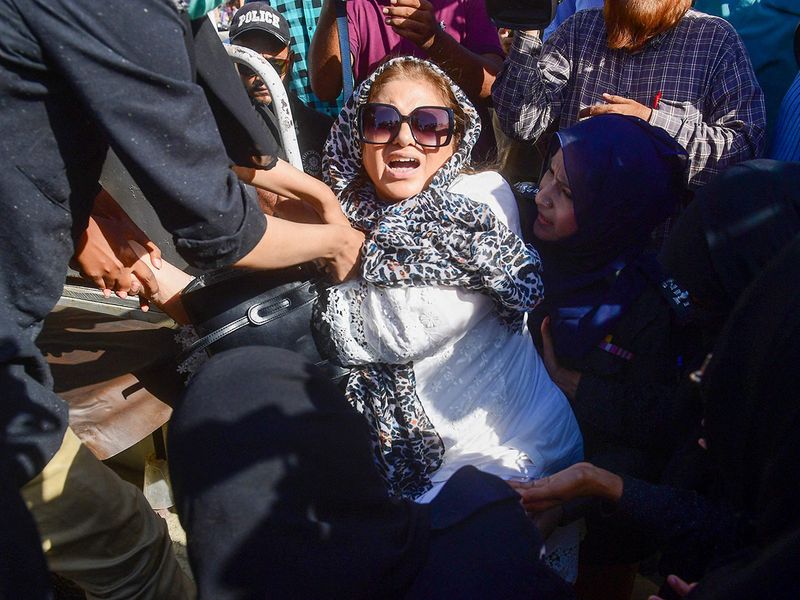
New terror case
Separately Thursday, police filed new terrorism charges against Khan and top leaders from his Pakistan Tehreek-e-Insaf party on charges of inciting mobs to violence.
In an address to the nation late Wednesday, Prime Minister Shahbaz Sharif — who took over after Khan was removed in April last year in a no-confidence vote in Parliament — said the unrest by the former premier’s followers had “damaged sensitive public and private property,” forcing him to deploy the military in Islamabad, in Punjab – Pakistan’s most populous province -- and in volatile regions of the northwest.
“Such scenes were never seen by the people of Pakistan,” Sharif said, following a Cabinet meeting. “Even patients were taken out of ambulances and ambulances were set on fire.”
Sharif called the attacks “unforgivable,” and warned that those involved in violence would be given exemplary punishment. He said Khan was arrested because of his involvement in corruption, and that there was evidence backing up these charges.
Foreign Minister Bilawal Bhutto Zardari, the late Benazir Bhutto’s son, urged Khan’s followers on Thursday to end the violence but stressed that peaceful protests are their right. “What has happened, has happened. Don’t make things more difficult for yourself,” he said.
Following the violence, the government shut down schools, colleges and universities in Punjab and northwestern Khyber Pakhtunkhwa provinces, where Khan has a massive grassroots following and where most of the violence was reported. At least seven of the protester deaths so far have been reported in Khyber Pakhtunkhwa and two in Punjab’s capital Lahore, along with one in the southwestern city of Quetta. The government also suspended internet service in various parts of the country.
“We will arrest all those who disrupted law and order,” said Mohson Naqvi, the chief minister in Punjab.


